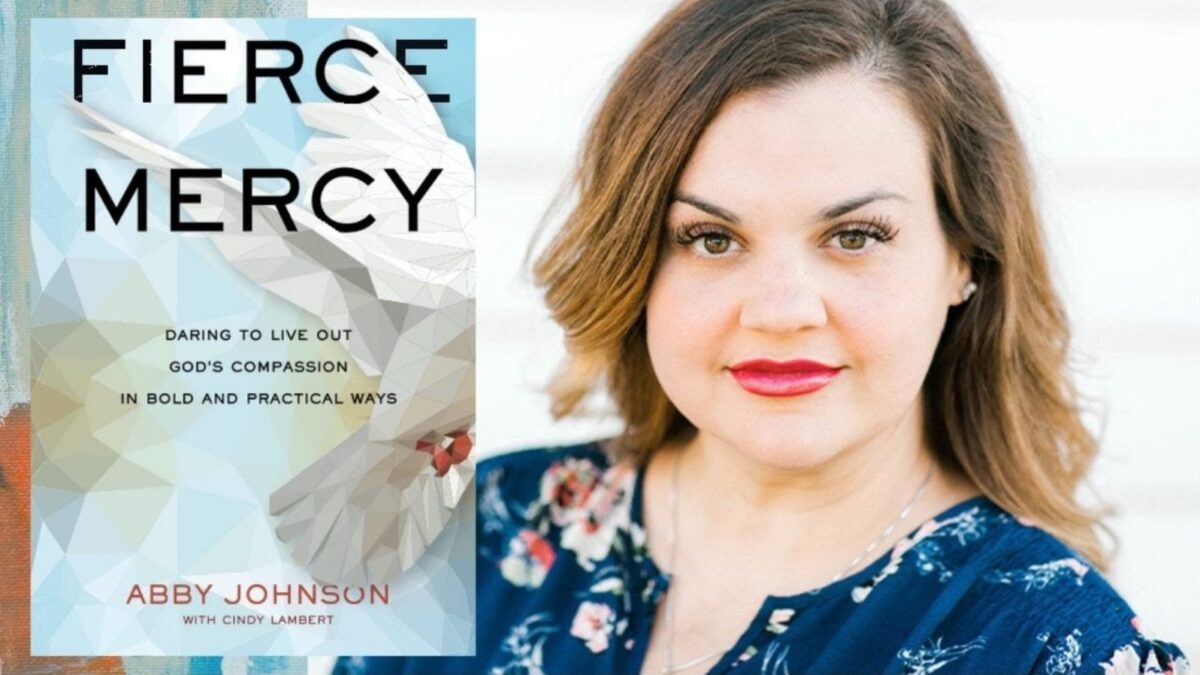
Editor’s Note: Sexytime is a feature at The Federalist where resident sex experts Rich Cromwell and Mollie Hemingway answer reader questions.
Q: My parents never gave me the birds and bees talk. They never talked about sex with me, even once. My wife’s parents were total hippies who were more open about sex than she would have preferred. We have kids and it just occurred to us that we could use some tips about the proper way to talk to children about sex. Do you have any?
Rich: Being the father of three daughters means that discussing the birds and the bees is something I know will inevitably happen. The oldest may only be 7 now, but I don’t think my wife is going to go along with my plan to feign a zombie apocalypse and move the family to a cabin in the woods sometime before puberty arrives. That means we’re going to have to explain to the kids where babies come from. (Mental note: Buy more shotguns.) Sure, we could trust the schools to do that—it’s why we pay taxes—but we prefer a tad more control over what our kids learn. Especially since non-religious schools tend to take a fairly mechanical approach.
Even the Episcopal elementary school I went to only covered pregnancy, disease, and basically did its best to scare us out of having sex. I think. I started off the first session by getting sent to the principal’s office for saying something…colorful. Anyway, even that religious school—and though I joke, back in the ‘80s southern Episcopalians were actually still pretty religious—didn’t discuss the unitive properties of sex, didn’t discuss complementarity, didn’t discuss its role in marriage. In short, the conversation was mostly just about the fact that sex was a really obviously awesome thing that could cause the most awful thing of all, babies, so the focus was more on why it was best to avoid it altogether or take some steps to ensure safety if you insisted on partaking.
This, of course, has its place. From a purely mechanical perspective, it’s good to know where babies come from. But that mechanical understanding doesn’t necessarily prepare our kids to make good decisions when they’re outside of the house, where most of the stupid decisions are made. So what’s the solution?
Maybe discuss with kids the emotional impact of having sex early. You’re an old fuddy duddy who doesn’t understand how totally mature your kids are, so use this handy Google search to help you. Whereas they won’t listen to you, they might listen to strangers on the Internet. If you’re religious, point out complementarity and trust and how we’re not just rutting terrestrial organisms. If you’re not religious, point out complementarity and trust and how we’re not just rutting terrestrial organisms.
In other words, kids embrace stupidity. Think back to your own teen years—risk was the flame and you were the moth. Merely focusing on unplanned pregnancy and its effects on the future, a wholly nebulous concept for tweens and teens, isn’t going to get you far. But maybe, just maybe, if you give them a chance to use their brains, their time horizons will expand and they’ll pour some water on those hormones that are telling them to make rash decisions. They’ll not fly into the flame and will instead wait till they’re a bit older and capable of handling the emotions that come with sex.
By taking a holistic approach and teaching that sex is a part of life, not just as a creative act, perhaps you can impart in them the simple truth that sex is fantastic, terrific, wonderful, but not something to take lightly. It’s not a destination on the road to adulthood, nor is it something frightening and verboten that is to be discussed as quickly as possible then checked off the to-do list.
This strategy may not work, but treating them like future adults and giving them truths about sex instead of just seeking to scare them is a better option than saying “babies are bad, here’s how to stop them.” If nothing else, it will give them the opportunity to make fantastic analogies like this.
Impromptu birds & bees talk ended with my son comparing testicles to Transformers, so I guess that went well.
Hot Breakfast (@amydillon) July 11, 2015
Failing that, you can borrow my zombie strategy. Be advised: You’ll need plenty of shotguns to really sell it. And if you can’t pull off the zombie part, at least you have the shotguns.
MOLLIE: It’s wonderful that you’re thinking about this. I’m absolutely horrified by how many people I know whose parents never talked to them about sex. As a parent, you basically have one job: raise a tiny human into an adult. You simply can’t do that properly unless you explain sex to them.
And you absolutely, positively, can’t leave the task to public schools. Are you crazy? The Onion had a great story a few years ago headlined “Increasing Number Of Parents Opting To Have Children School-Homed,” about how parents were abdicating responsibility for their children and leaving all education, including sex education, to the schools. The last line was awesome:
Though school-homing has proven to be an ideal solution for millions of uninvolved parents, increasingly overburdened public schools have recently led to a steady upswing in the number of students being prison-homed.
I wrote up some tips for talking to your kids about sex last year.
The first piece of advice about having “The Talk” is not to have it. That’s because instead of a single talk, you have an ongoing conversation over the course of your child’s life. It may sound difficult but it’s actually quite easy. When your children are young, they want to talk about body parts and what makes boys different from girls. They have questions about where babies come from but cursory responses satisfy them. As they age, the questions become much more complex but still answerable. The key is to not try to answer everything in one talk. Or 200 talks. It’s more about an unending conversation involving body parts, emotional navigation, long-term plans, your family’s values, and more. Except that makes it sound like you’re talking about it all the time and really you’re just talking about it when it needs to be talked about. My other tips include:
- Partly be proactive, partly be responsive.
A lot of talking about sex with your children is just answering the questions they have. But sometimes kids need to be made aware of things they might not inquire about on their own. A young child might need to know about who is and is not allowed to see them naked. A girl approaching puberty is going to need to be told what to expect before her period arrives. Teens in hormonal heat will need all sorts of help navigating the minefield that is teens in heat, whether or not they ask for help.
- Sometimes it’s good to ask them why they want to know something.
Before you panic — or begin your lengthy soliloquy of response — ask them to explain why they want to know something. Did he ask about foreskin because he just noticed his penis looks different from his friend’s? Did he ask about it because he doesn’t know what the word means? Because he thinks he’s having a problem with it? No need to go on and on without first learning what your child actually is hoping to have answered.
- Teaching them about the mechanics or emotions is easier than transmitting your morals. Don’t skimp on the latter.
Being a parent means you are in the business of inculcating morals. I know, it sounds so judgmental. Take deep breaths and realize that everyone has strong ideas about what is right behavior and what is wrong behavior. Don’t believe the lie that some people are moralistic and some aren’t. Every single person on earth is doctrinal in their sexual morality, whether that morality is that sex is a gift from God to be enjoyed within marriage or whether it’s that sex should have no limits beyond safe-words and safety restraints and maybe-bestiality-isn’t-cool-but maybe-it-is-who-knows-the-important-part-is-that-you’re-having-fun-and-using-birth-control-and-not-having-babies-until-your-late-30s.
- Love your spouse. View sex as a blessing.
One of the best things parents can do to help their kids develop a healthy attitude toward sex is to demonstrate that they themselves have a healthy attitude toward sex. And since it’s really hard to fake happiness with a crappy sex life, that means having a loving marriage with lots of sex.
- Note how you talk about babies.
It’s really hard to convey to your child that you view him or her as a blessing if you think babies are some type of curse that need to be contracepted against or completely controlled. And it will be hard to teach your child about the sanctity of human life if you are cavalier about how that human life begins.
- Be positive about sex.
One of the things I’m grateful my parents did was get me this fantastic book to explain sex. It was put out by my church body and as one reviewer recently wrote, “I’ve come across plenty of weird old books trying to explain sexuality to kids, but this is probably the most happy and colorful.” Particularly since so much of sex talk is about what not to do, being positive about the great gift of sex is very important.
- Don’t be morally confused.
A discussion based on ever-changing personal and societal views, a near obsession with personal wants, and no objective standard for what to do when one’s personal desires collide with another person’s desires is a very difficult discussion to have.
Of course, if we want to raise children who care about something deeper and less fleeting than satisfying physical desires, that should be just one component of a larger discussion about who we are as humans, the gift of our sex, how our sexes complement each other, the significance of that complementarity, family formation, personal responsibility and our higher and more transcendent ends.
Q: The Federalist posted an article defending the practice of polyamory on libertarian grounds. It struck me as a profoundly unwise approach to sexuality. What do you think? Is polyamory a wise practice?:
Rich: Ahh, yes, the article on polyamory, or what people with a variety of silk robes and cocaine habits used to call “swinging.” Though in modern language and modern times, it’s probably more akin to bike sharing programs. In any case, we knew this question was coming. So is polyamory wise?
Probably not. Because you’re a human with human emotions. Even if you have a variety of silk robes and a cocaine habit, which my inner libertarian is totally cool with, you’re still going to be human. Don’t try to pretend you’re just a rutting terrestrial organism. Even if you aren’t shackled by God or the Man and his laws, just stop it. Sex carries an emotional component. But don’t take my word for it, listen to Sara Burrows.
Yes, it happened. The deed is done. I had sex with another man. It was so much more than that, but that seems to be all our culture cares about – the physical act of sex. Let the slut shaming begin. I’ve already shamed myself and faced Brad’s look of pain and betrayal, and I’m sure many of my secret readers – hiding in dark rooms behind the glow of their computer screens – are shaking their heads in disapproval.
Doesn’t that sound great, especially the self-shame and the look of pain and betrayal on Brad’s face? No, there are no shackles there. None whatsoever.
Look, not to repeat myself too much here, but even if you’re not religious, there are unitive properties to sex. There are chemicals released during sex that may bond us together. There’s the persistence of memory, of those powerful and explosive moments shared with another human. Trying to form multiple relationships around all those memories and explosive moments, trying to take a unitive act and make it a party, isn’t going to work for most people.
In fact, though statistics are hard to come by, in most cases it seems there is no primary partner. That makes the whole enterprise seem…odd. More about moving through life as nominally attached singles instead of as a couple.
Maybe that sounds good to you. I’ve been on the Internet; I’ve read stranger things than that. But based on those things, and the verbal gymnastics people like Burrows go through when rationalizing why it’s totally cool that her baby daddy is feeling pain and betrayal, I’m going to have to say, no, polyamory, like those aforementioned bike sharing programs, isn’t wise. Especially for the woman when the man realizes that the new bicycle he’s been taking for a few spins is younger, newer, shinier, and not prone to leaving him feeling pained and betrayed.
MOLLIE: As most people in the world have figured out, polyamory is a very stupid and dangerous idea, particularly because all intercourse between men and women is ordered toward procreation. And bringing kids into a situation where you don’t know precisely who the father is, or the father isn’t with the mother in a committed marriage, or the father is different from the father of her siblings, is just cruel to the extreme. Better than killing such “products of conception” as Planned Parenthood and other abortion businesses might recommend to the polyamorous, but still cruel.
The author of the piece you reference has a daughter with the man she lives with. She’s seeking out other sexual partners to deal with some emotional trauma or failure of development. She is showcasing a startling lack of concern for her child and the man who is essentially her husband, and it’s not even like the devastation she’s causing them will be balanced out by something good for her, as Rich notes above.
So no, if wisdom is “the quality of having experience, knowledge, and good judgment; the quality of being wise,” “the soundness of an action or decision with regard to the application of experience, knowledge, and good judgment,” or “the body of knowledge and principles that develops within a specified society or period,” then no, polyamory would be better described as breathtakingly ignorant of how humans flourish, stupefyingly shortsighted and profoundly immoral and malevolent.
Q: Last week, John Davidson argued against beta males, and I found myself nodding in agreement with what he wrote. But when I look at my own husband, while he’s professionally successful and powerful and does a great job providing for our family, he’s not physically intimidating. Scenes on the subway are tragic, but not all men can be alpha males, right?
Rich: By definition alone, no, most men cannot be alpha males. That doesn’t preclude them from being men, though. As a modern society, though, we tend to denigrate traditional masculinity. As C.S. Lewis wrote in “The Abolition of Man,” “In a sort of ghastly simplicity we remove the organ and demand the function. We make men without chests and expect of them virtue and enterprise. We laugh at honour and are shocked to find traitors in our midst. We castrate and bid the geldings be fruitful.”
But Davidson’s argument against beta males, specifically those who did nothing and then rationalized it, wasn’t about brute strength. It was about having a plan of action for any situation and for facing down danger rather than cowering from it. It was about having having honor, virtue, and enterprise; having chests.
See, we’re not on the savanna, jockeying for position and mating rights. Well, we are, but civilization allows us to take a more nuanced approach, one in which our brains are assets. We have the ability to make tools, to formulate strategies, to calculate contingency plans. As Davidson correctly noted with regard to the Washington DC metro story, none of the other passengers had any of those. They just had excuses.
Because while not all men can be alpha males, they can be men. They can embrace masculinity and the gifts that have served us pretty well since the dawn of civilization. Your husband, who in your words is successful and powerful, may not be a future MMA fighter, but your short description suggests he does a good job at embracing masculinity and its gifts. Otherwise, he might not be successful and powerful and good at providing.
Sometimes that last point serves as proof that man is beta, as in beta provider. And there are definitely married men who are not handling things on the homefront and whose wives aren’t satisfied. But just as the horror on the metro showed us, men with chests will arise to any occasion and handle things, whether at home or out and about. Those without them, the castrated geldings with no hope of being fruitful, will not. So while not all men can be alphas, all men can be men, which is more important than pure physical strength anyway.
MOLLIE: Many people have mischaracterized Davidson’s argument. It wasn’t that all men are or should be alpha males, if that were even possible. Or even that one can’t understand not doing anything to help a man who is being murdered in cold blood in the middle of the day — but that not feeling, at the very least, regret about said impotence is inexcusable.
In general, it’s hard to fault people in this situation for failing to intervene—even though they obviously should have. What is more surprising is a failure to express regret for not having intervened to save a man’s life.
Various progressives found even this a bridge too far. Some people seem to think beta males are better than men who stand up for themselves. Check out this (trigger warning: this was deemed publishable by Salon):
My husband will occasionally tell me a story — about apologizing to someone who was in the wrong or a tense email exchange that he ended with a smiley face — and wryly conclude, “That’s how beta I am.” Personally, I would prefer to call this “sensitivity, emotional intelligence, and peacemaking.” But, sure, if we’re to crudely categorize men as either alpha or beta, leaving zero room for nuance, and if we define kind, nurturing behaviors that cannot be categorized as stereotypically, defensively masculine as “beta,” I suppose my husband is a beta. And thank goodness for that.
Did you vomit? I almost vomited. I mean, it’s not apologizing to someone who wronged you or even using emoticons that’s the real crime here, though let’s be clear: these are indefensible things. It’s proudly telling the woman you have sex with that you’re weak and incapable of standing up to wrongdoers.
It so happens that I am married to a 6’5” man who is routinely breaking up fights and helping defuse tense situations. But just because he’s physically intimidating doesn’t mean he lacks emotional intelligence (it just seems that way sometimes, heyo!). He’s tender with our children and with me. Heck, most of his fight-breaking-up is textbook definition of peacemaking. The other day he was with our children in the parking lot of a Home Depot when two men were about to come to fisticuffs. They were loudly cussing and my husband told them to knock it off. One fellow did get angry with him, but the interjection was enough to get everyone to calm down and reconsider their fighting.
I’m glad my husband has the courage to intervene to help neighbors even in the face of physical harm, but I’m even happier at the message he sends our children through his actions.
Mike Barnicle wrote in defense of those who did nothing to help the murder victim:
The reality is that nobody knows how they would react in a similar situation. We’d like to think we’d behave honorably, with courage and care, but we simply cannot know until a moment like that occurs.
Except that some men know precisely how they’d react in a similar situation. They are thinking regularly about external threats and they have personal experience with how they’ve handled it in the past. For instance, my father-in-law, a retired Marine colonel, has frequently and courageously stood in the face of danger and to help his fellow man. He’s dealt with situations far more uncertain and threatening than subway violence and he’s vanquished those threats. How many veterans have experience in such dangerous situations and are well prepared to handle them?
Even non-veterans have experience in their lives that help prepare them. My father, a pastor, has broken up more fights than you can imagine and risked his life to help parishioners in physical danger and domestic abuse situations.
One of the things that makes men awesome is, in fact, that they act to protect those less powerful than them. This almost always means women and children, but also other men. Our society is currently experimenting with the delusion that boys and girls are and should be interchangeable. This means telling women to be more like men (Lean in! Career is where it’s at! Don’t say sorry! Don’t gestate a baby!) and telling men to please be more deferential and stop being so masculine. It’s absolutely true that some boys are bullies and violent. But as Christina Hoff Sommers wrote, “most boys evince healthy masculinity. They may enjoy mayhem in games and sports, but in life they like to build, not destroy. Their instinct is not to exploit vulnerable people but to protect and defend them. Of course, all boys need guidance and discipline from the adults in their lives.”
It’s true that across all cultures, women tend to be the nurturers and men the warriors, but it’s also true that we’re doing our level best to fight against these natures. We can’t be surprised when men leave their fellow man to die and then justify it.
No matter their physical strength, men should work to protect their wives and children. Physical threats are perhaps the least of our worries these days and men are needed to protect children from the harms that are guaranteed to come their way through school, the internet and television, among other places. Perhaps the greatest threat facing children these days is the absence of their fathers from their lives, given how it leads to negative educational, financial and emotional consequences. You don’t need to be a subway hero to be a present and engaged father. Being present can be the most physically important act a father ever takes to defend his family.









